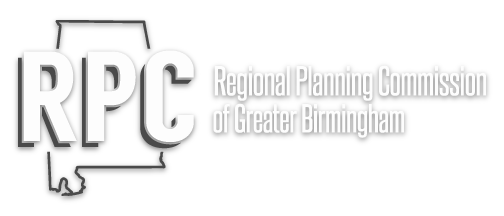Environmental Justice and the Justice40 Initiative
“Environmental justice (EJ) is the fair treatment and meaningful involvement of all people regardless of race, color, national origin, or income with respect to the development, implementation, and enforcement of environmental laws, regulations, and policies.”
“Fair treatment means that no group of people should bear a disproportionate share of the negative environmental consequences resulting from industrial, municipal, and commercial operations or the executive of federal, state, local, and tribal programs and policies.”
– The U.S. Environmental Protection Agency’s (EPA) Office of Environmental Justice
In practice, environmental justice applies civil rights to environmental protection. This holds that everyone - regardless of race, color, national origin, or income - is entitled to the same environmental protections and benefits.
Environmental justice is explicitly addressed in the long-range transportation planning process, as shown in the following appendices from the Birmingham MPO’s Regional Transportation Plans:
Environmental Justice Appendix from the 2050 Regional Transportation Plan (2023)
Map showing number of survey responses related to the development of the 2050 Regional Transportation Plan overlaid with the Environmental Justice Areas
Environmental Justice Appendix from the 2045 Regional Transportation Plan (2019)
Environmental Justice Appendix from the 2040 Regional Transportation Plan (2015)
Justice40 Initiative
Justice40 is a federal initiative that aims to ensure that at least 40% of the benefits of certain federal investments make their way to disadvantaged communities that are marginalized, underserved, and overburdened. Federal investments are considered “covered” by Justice40, or within the scope of Justice40 initiative, if they include investments that can benefit disadvantaged communities across one or more of the following seven areas:
Climate change
Clean energy and energy efficiency
Clean transit
Affordable and sustainable housing
Training and workforce development
Remediation and reduction of legacy pollution
Development of critical clean water and wastewater infrastructure
Some of the federal transportation funding that is allocated to the Birmingham MPO is considered covered by Justice40. To see which federal transportation funding programs are covered under Justice40, please click here.
The US DOT Equitable Transportation Community (ETC) Explorer is an interactive web application that uses 2020 census tracts and data, to explore the cumulative burden communities experience, as a result of underinvestment in transportation, in the following five components: Transportation Insecurity, Climate and Disaster Risk Burden, Environmental Burden, Health Vulnerability, and Social Vulnerability.
Our Ongoing efforts
By comparing the locations of the fiscally-constrained capacity projects listed in the 2050 Regional Transportation Plan with the locations of Environmental Justice Areas and Justice 40 Census Tracts, we can get an impression of how equitably this transportation funding is to distributed.
54% of all the fiscally-constrained capacity projects listed in the 2050 Regional Transportation Plan are within Environmental Justice areas. This equates to 51% of the the total miles of the capacity projects, and 62% of the total funding allocated to the capacity projects. A description of the capacity projects is found in the Environmental Justice Appendix from the 2050 Regional Transportation Plan (2023)
This is an informal analysis, but it demonstrates the RPCGB’s and Birmingham MPO’s ongoing commitment to the ideals behind the Justice40 initiative.
AREAS OF PERSISTENT POVERTY (AoPP)
In June 2022, the RPCGB was awarded $495,000 from the FTA to study three transit areas in the City of Birmingham and develop plans to improve transportation options and land use to connect people living in areas of persistent poverty to the city’s bus rapid transit system.
This grant paves the way for increased transit access and equity-focused community outreach. The goal is to empower underserved communities by providing convenient, seamless, and timely transit access, making way for new opportunities and prosperity.
Please visit the project website at https://www.areasofopportunitybhm.com/ for more information.

